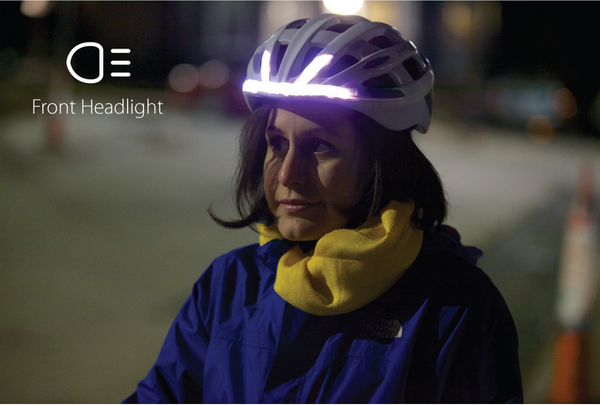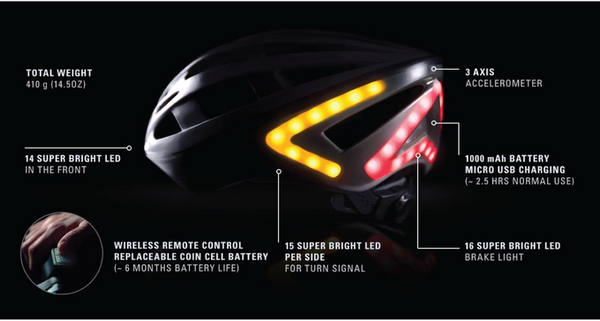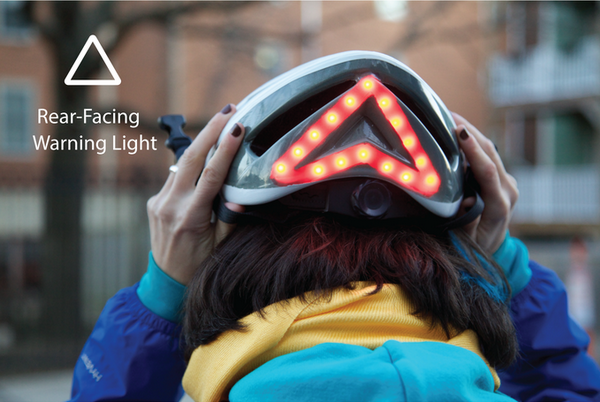Bikers wearing Lumos Helmets can turn on the road without having to memorize hand signs, and avoid potentially being hit by confused motorists.
 |
|
A woman wearing Lumos Helmets. The front of the helmet is equipped with 14 white LEDs. (All photos courtesy of Lumos Helmet via Kickstarter) |
The LED bike helmet was conceived at a Harvard Innvation Lab hackathon. Lumos CEO Eu-Wen Ding saw visibility was a common issue among bikers in Chicago, and pitched the idea to the company CTO Jeff Chen. Chen designed the bike helmet and the related technology.
According to the company’s Kickstarter campaign page, the helmet incorporates 80 super bright LEDs, the 14 white LEDs in the front are the brightest emit 44 lumens of light. LEDs used in turn signal lights and brake lights emit 38 lumens of light, and respectively are made of 15 and 16 super bright LEDs.
 |
|
A diagram of Lumos Helmet design. |
Three axis-accelorators are built into the helmet to determine when a cyclists has stopped the bike, and the automatic brake lights will light up.
 |
|
Rear lights of the helmet light up automatically when a cyclist stops. |
The helmet is pre-paired with a wireless handlebar remote in the factory, that operates on instead of making hand signals when turning, signal lights on helmets clearly show the direction cyclists are turning. The wireless handlebar uses an unobtrusive wireless 2.4 GHz RF handlebar remote.
Lumens team has acquired key patents for the helmet, with some of its patent applications still pending. The company has not responded to LEDinside’s inquiry about whether any of the patents were LED related.
 |
|
The helmet will be available in black and white models, and the startup is launching a limited edition of specially designed helmets by Inkwell for Kickstarter supporters that pledge US$ 219 or more. |
Consumers based in countries that do not use EU and U.S. helmet safety regulations are on an indefinite wait list. Lumens Helmets has acquired CSPC Helmet Safety Certifications in U.S., and the EN1078 Certifications from the EU, and is still considering whether to introduce the helmets to other global markets.
Nonetheless, the company’s Kickstarter campaign has been successfully funded acquiring US $484,446 out of $125,000. Early supporters of the company's Kickstarter campaign are expected to receive the helmets by April 2016.















